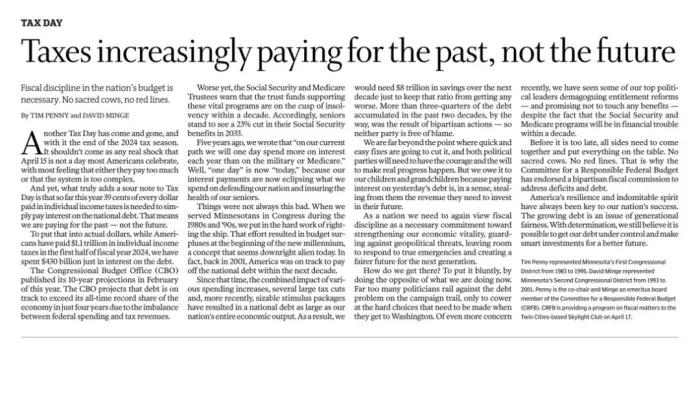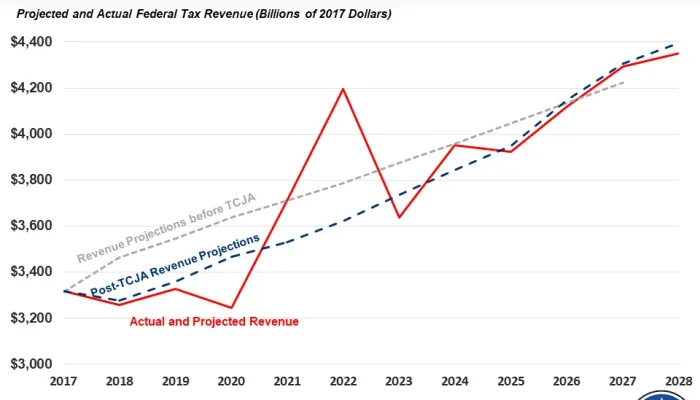Hubbard: Tax Reform is the Best Way to Tackle Income Inequality
Last month, President Obama gave a speech on rising income inequality in the United States, which is a theme expected to be prominent throughout the President's 2014 agenda. He noted that the majority of the economic gains since 1979 have gone to the richest households, and "the income of the typical family has increased by less than eight percent." As part of the speech, Obama proposed a number of solutions: raising the minimum wage, encouraging education reforms, supporting the social safety net, and extending unemployment benefits.
In an op-ed posted today in the Washington Post, Glenn Hubbard, former chairman of the Council of Economic Advisors under President Bush, seems to agree that income inequality is "the defining challenge of our time," but instead argues that reforming the tax code is the best way to lessen income inequality.
However, he says it is not enough to change the tax code solely in the name of reform. Instead, it must be purposefully restructured to better benefit low-wage workers.
A policy shift in favor of mass prosperity — dynamism and inclusion — is best conducted via fundamental tax reform. The discussion and policies to be considered, however, should look different from those in the present debate. The Obama administration has supported raising taxes on high-income earners and corporations to pay for expanded benefits to low-income Americans. Such an approach is unlikely to raise labor demand or labor-market earnings for those or other workers.
The opposing view, by contrast, centers on classic tax reform of “broaden the base, lower the rates.” Unlike the Obama administration proposals, this tax reform will increase capital accumulation, economic growth and employment. But it is insufficient for increasing the inclusion of low-wage workers, whose incomes may not benefit fully from economic growth.
In particular, Hubbard points out two changes that could make the tax code work better for low-income Americans.
For employees, the tax code does little to encourage human capital formation, education or skills development. For many Americans, a simplification and expansion of education-related deductions would be a positive step. With an eye toward raising inclusion in the labor force, one could consider a voucher for low-income individuals for education, training, tuition or their children’s education.
A second employee-based approach builds on the earned-income tax credit, which promotes work as it reduces poverty. While successful, the credit could be improved if inclusion were the goal. As currently constructed, the credit mixes support for families with a tax credit on earnings. Increasing the credit for childless workers to an amount closer to that for families with children would augment the direct work incentive and help counter poverty among the working poor.
We've long noted the need for reforming the nation's tax code. Many tax preferences are expensive, regressive, economically distorting, and do not pass the cost-benefit analysis. Getting rid of some of these preferences offers the opportunity to make the tax code simpler, fairer, and more pro-growth. Reforming the lower-income credits as Hubbard mentioned has been a part of many tax reform plans which also went after tax expenditures, including the 2005 Tax Reform Panel and Domenici-Rivlin plans.
In addition, our ongoing Tax Breakdown series analyzes many of the biggest tax expenditures, showing how some of them could be made more progressive or increase the "bang-for-the-buck," having a greater impact for less money. Tax reform done right offers an opportunity to simultaneously raise revenue, reduce tax rates, and increase progressivity. Glenn Hubbard offers two ideas to reform the tax code that could be considered.


